Drama, Theatre and Performing Arts
with a Year Abroad
Become one of the next generation of makers, thinkers and influencers in the theatrical world.
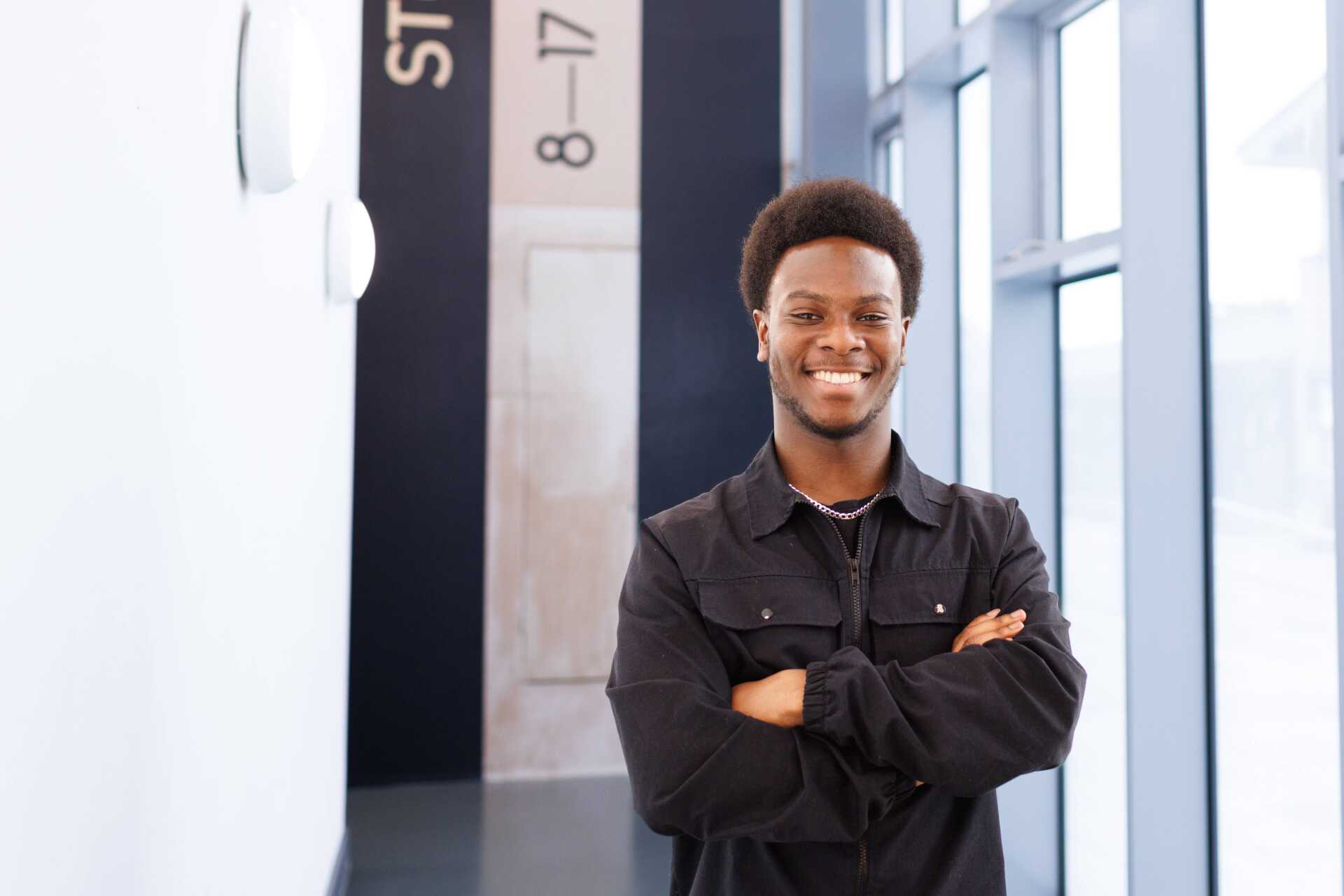
Become one of the next generation of makers, thinkers and influencers in the theatrical world.
On our Drama and Theatre course, you'll benefit from exceptional teaching and industry links that will help you to launch your career. Covering a wide range of subjects and developing your practical skills as well as critical thinking, this dynamic course allows you to explore your own style and creativity as well as follow your passions and ambitions.
We'll challenge you with theoretical and practical study, empowering you to shape your degree around your areas of interest. You'll work alongside fellow students, creating new work and new ways of seeing established works. Our team of academics, professional practitioners, and technical specialists will support you every step of the way as you analyse, create and critique, developing your understanding of drama and theatre and becoming a more confident performer.
You'll study within an exciting and diverse environment, benefitting from our strong connections with industry and local arts venues, opportunities for workplace learning and our flagship Graduate Theatre Company scheme, all of which support you in kick-starting your career within the creative industries.
Your year abroad takes place between your second and final year of study; you can either study at a partner institution or work. It's a great opportunity to discover a new culture. Your confidence will grow and you'll also demonstrate to employers that you have the drive to succeed in new environments.
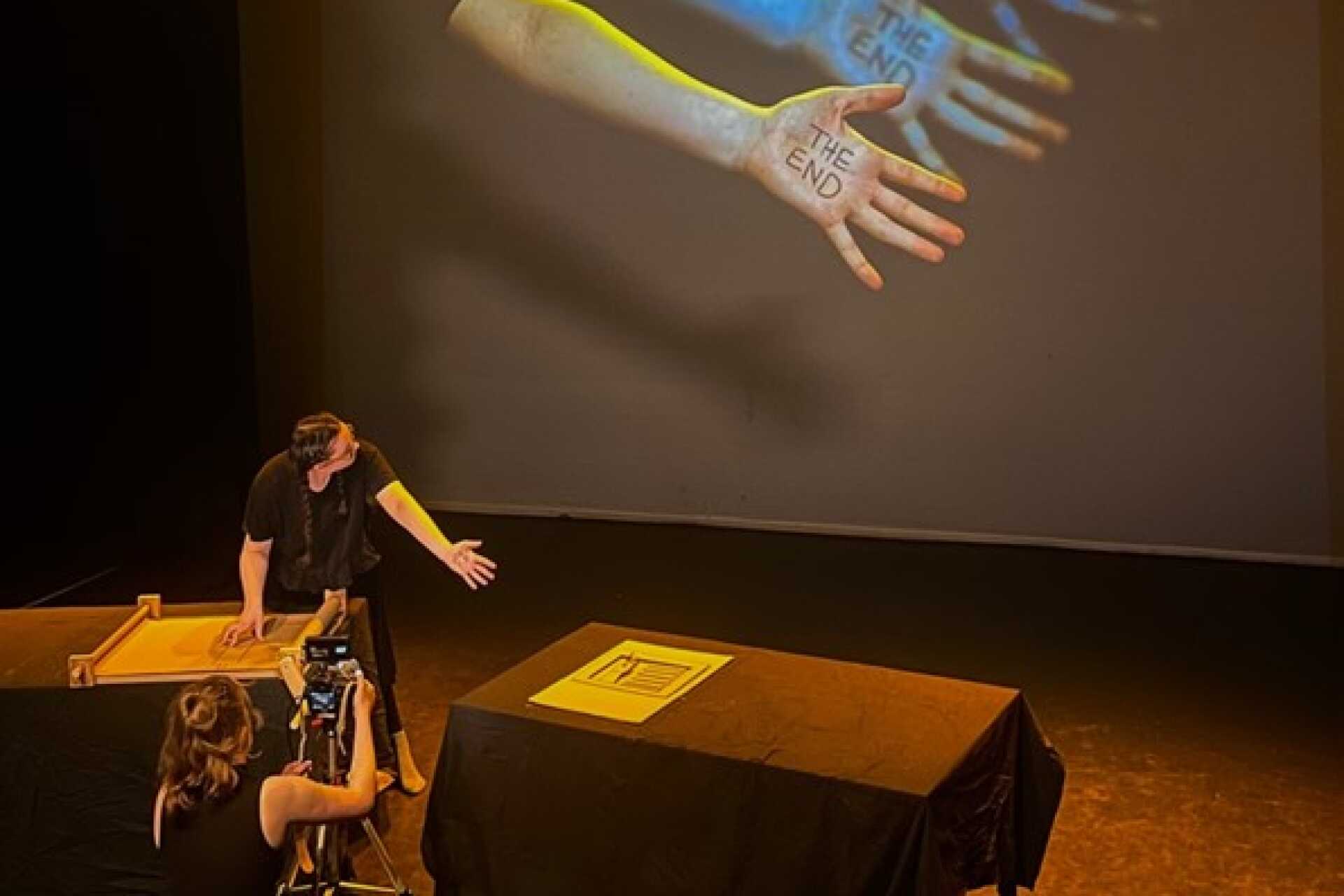
Our Drama at Kent workshops are dedicated not only preparing you for higher education, but also to helping you secure your place at Kent.
We're ranked 7th for research quality in The Complete University Guide 2023.
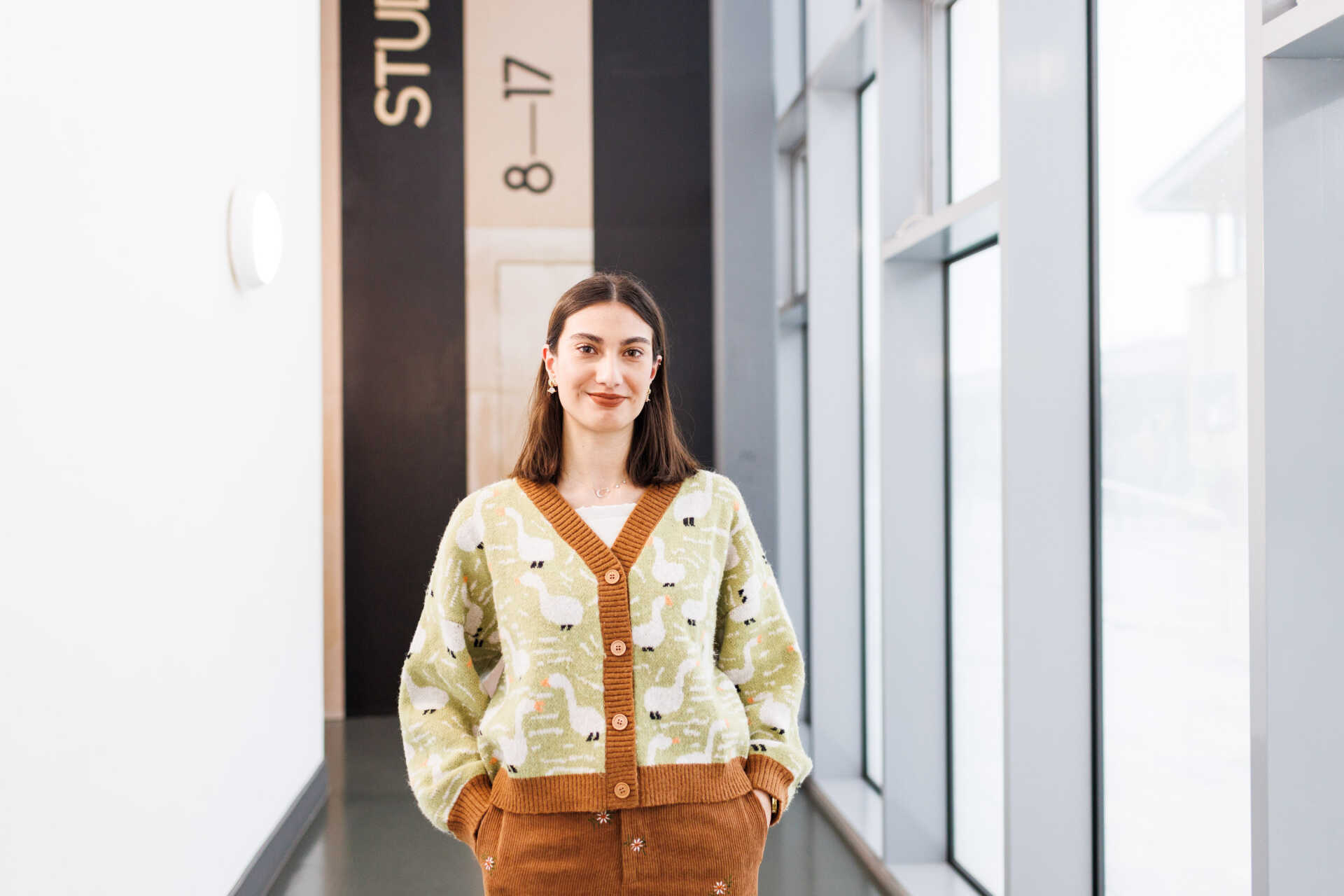
Three years after graduating, Amelia Mundy has already managed to land her ‘dream job’ in TV production. So how did she manage it?
Links with industry and local arts venues and our flagship Graduate Theatre Company scheme help to kick-start your career in the creative industries.
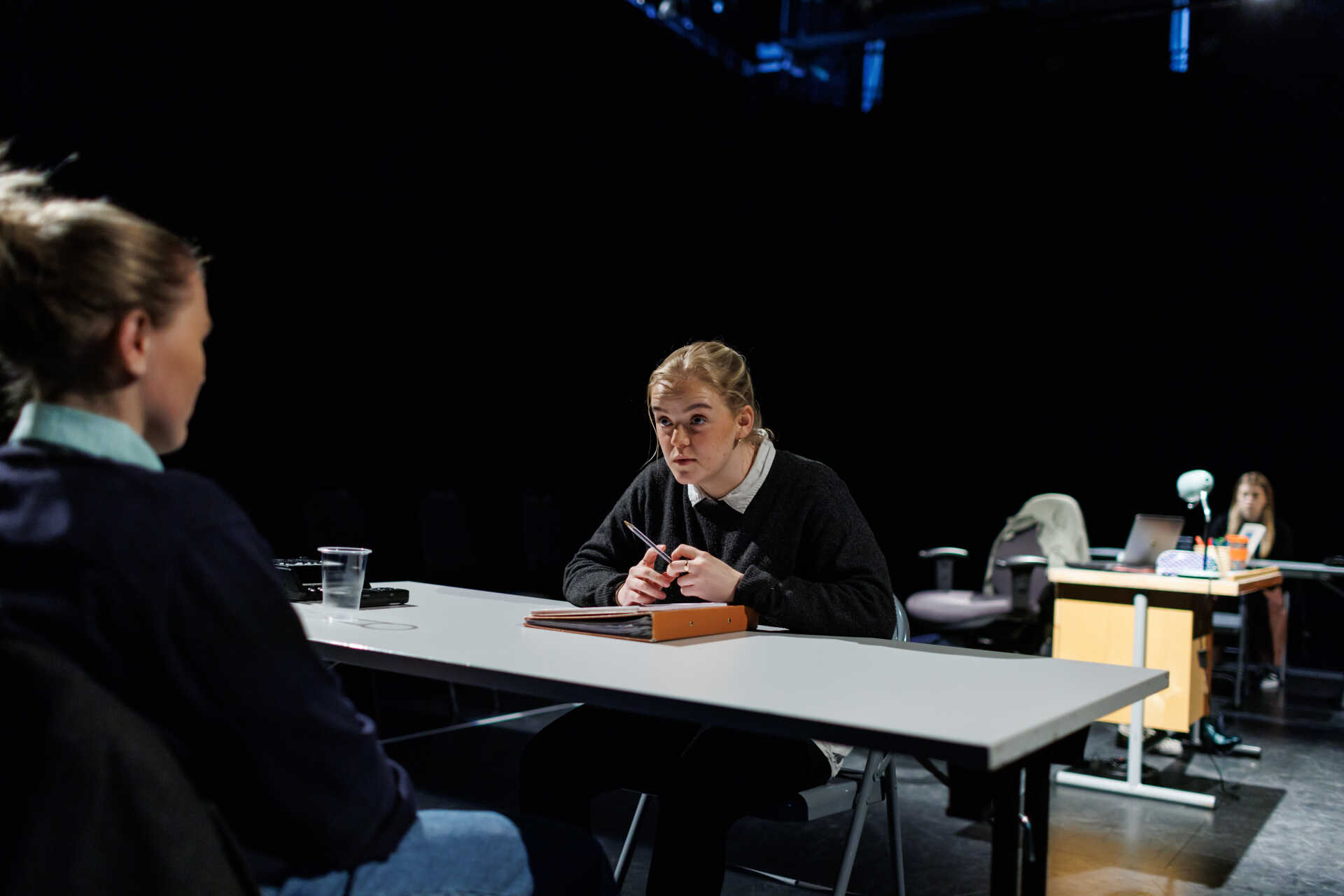
From rehearsal studios to theatres and a construction workshop, our bespoke drama facilities will improve your practical skills and technical knowledge.
Our typical offer levels are listed below and include indicative contextual offers. If you hold alternative qualifications just get in touch and we'll be glad to discuss these with you.
BBB
The University will consider applicants holding BTEC National Diploma and Extended National Diploma Qualifications (QCF; NQF; OCR) on a case-by-case basis. Please contact us for further advice on your individual circumstances. A typical offer would be to achieve DDM in a suitable subject.
30 points overall or 15 points at HL
Pass the University of Kent International Foundation Programme.
The University will consider applicants holding T level qualifications in subjects closely aligned to the course.
The University welcomes applications from Access to Higher Education Diploma candidates for consideration. A typical offer may require you to obtain a proportion of Level 3 credits in relevant subjects at merit grade or above.
Applicants for the BA in Drama, Theatre and Performing Arts will be invited to a practical workshop and informal group interview, either in person or online. This is designed to allow us to get to know you better, and for you to ensure that all your questions about the course are answered. Those who attend the workshop and receive a conditional offer will receive a one-grade reduction from the published offer level, meaning that your offer would be BBC rather than BBB, or equivalent.
The following modules are offered to our current students. This listing is based on the current curriculum and may change year to year in response to new curriculum developments and innovation:
This is a module about the implications of Peter Brook's idea that anything can be seen as 'an act of theatre’. Students will be invited to see beyond their own default assumptions about theatre, and introduced to a diverse range of methods of devising their own performances. In practical workshops, they will learn about professional practice, warming up, performance skills, and collaborative group work; and will explore the possibilities of creating performance from a range of starting points, including (for example), space, body, voice, text, or character. This practical exploration will sit alongside an introduction to related aspects of history and theory. In seminars, students will be introduced to such concepts as theatre spaces, traditional play texts, non-traditional theatre texts, historical approaches to characterisation (e.g. Stanislavski, Mike Leigh), physical approaches to acting (e.g. Grotowski, Lecoq), and the different models for engaging an audience (e.g. Brecht, Boal). The experience will be enhanced by 4 ‘Theatre Forums’ within which students experience a short piece of performance by Theatre Companies/Performers who have emerged from the department, followed by an ‘open discussion forum, situating the work within the world of performance, and the influence that their university learning had in relation to their current practice. Students will be assessed by a short in-class performance and an essay. This module (together with Making Performance 2) will offer a solid foundation for all modules in years two and three which involve creative performance work.
Like Making Performance 1, this module is about the implications of Peter Brook's idea that anything can be seen as 'an act of theatre’. Students will be further encouraged to see beyond their own default assumptions about theatre, and introduced to an expanded range of methods of devising their own performances. In practical workshops, they will learn more about warming up, performance skills, and collaborative group work; and will explore the possibilities of creating performance from a further range of starting points, including (for example), improvisation, music, audience, personality, and aural and visual stimuli. Workshops will be longer than in Making Performance 1, to allow for a more developed engagement. Not only will this allow more time for discussion of the assigned reading, but it will also allow students to start engaging with technical aspects of theatre-making. Students will be encouraged to develop their own ideas about theatre and performance through a series of lectures in which different Drama lecturers talk to the students about their ideas of what theatre is and could be, and how these ideas have been shaped by their encounters with theatre as audience members, theatre makers, and academics. This module (together with Making Performance 1) will offer a solid foundation for all modules in years two and three which involve creative performance work.
This module will introduce first year students to ideas of theatre and performance as sites of citizenship, through exploration of contemporary, popular forms such as music gigs, performance poetry and comedy. Students will learn to identify and analyse key features and techniques present in popular performance forms, and to relate performances to their commercial, cultural and political contexts. This will include understanding of how 'DIY'/commercialist principles of production shape the work, and discourses that position performances as fun/difficult, legitimate/illegitimate and as high/low culture. They will explore how popular performances interact with the politics of government, identity and taste, and will be introduced to key concepts and debates on the usefulness of popular entertainment in shaping citizenship and public opinion. Students will be encouraged to reflect upon the forms of popular culture which they themselves enjoy, exploring the extent to which these shape their own attitudes and behaviours, and will create pop-up performances which demonstrate this awareness. By the end of the module, students will have acquired a foundational understanding of: popular performance as a genre; performance as reflection of its cultural and political contexts; the extent to which performances implicate their creators and audiences as citizens.
The aim of this course is to give students an understanding of a variety of practices, theory and historical contexts of masks and puppets in performance. By learning about different practices the students will develop a sense of the function and potential of objects in performance and training, as well as develop their own performance skills.
Screenings/lectures provide theoretical lenses and will focus on key practitioners and their historical, cultural and theatrical contexts. Practical workshops will deliver making skills and explore making performance, including instruction on diverse practical approaches to puppetry and/or mask work, rehearsal technique and supervised rehearsals. Students will be invited to explore beyond their assumptions and performance experience and will be introduced to the idea of play and risk as key components of the rehearsal process. Regular opportunities to present work and demonstrate understanding are built into the structure of the class. They will also reflect and feed back on the work of their peers.
You have the opportunity to select elective modules in this stage.
The art historian Aby Warburg – an avid reader of Thomas Carlyle's philosophical novel about clothes Sartor Resartus (1836) – said that a good costume, like a good symbol, should conceal as much as it reveals. This module will take an interdisciplinary approach to the study of costume and fashion – the art that can be worn – in order to explore their roles in drama, film and the visual arts. The social values encoded by clothes, their relation to class or sexual identity, will be discussed, along with how these assumptions inform the use of costume in adaptations or stagings of texts, or how they colour our view of a character, or of a director’s interpretation (for example, using deliberate anachronism). The role of clothing and costume in the history of art will be analysed from artists’ representation of clothes, contemporary or otherwise, to their involvement in fashion design.
This module will look at disability in the arts, covering theatre, film and visual art. The students will engage with the historical representation of disability within the arts and the way in which disability scholars have critically engaged with it. The students will also look at arts institutions (i.e. theatres, cinemas and galleries) and the disabling barriers within those institutions that prevent the full participation of people with impairments in the arts. This will culminate in an 'accessibility review', whereby the students analyse the adjustments made by arts institutions for people with impairments and the extent to which they are effective. Finally, the students will engage with examples of contemporary disabled artists whose impairments informs the aesthetic qualities of their work.
This is a practice-based module exploring the photographic medium and the contexts of its use through the production of photographs in response to a project brief and group-based critical discussion of the work produced. Students investigate how the context in which photographs are made affect how the world is represented, and how in turn these images shape perception. Students choose two practical project briefs that are designed to enable them to explore the medium creatively and through informed and reflective practice. The emphasis of the module is upon this creative practice rather than the acquisition of specific technical skills, and as such students are at liberty to use any photographic production and post-production technologies they wish to experiment with or find appropriate. A camera phone and access to a computer and printer are all that is needed for this module, though students who wish to make use of digital image processing or analogue processes, including use of a darkroom, are encouraged to do so. Each of the practical project briefs will be supported through a series of lectures closely examining various genres, styles and other contexts of photographic production through the work of those who have shaped them. In addition students will present the work they have produced in response to their project briefs, and engage in a broad critical discussion or their own and other's work.
Through weekly lectures, seminars and practical workshop sessions, the course will require the students to analyse a range of performance texts, to understand fundamentals of writing, then write material and experience the results and effects of their writing as performed by others. In the context of on-going discussions about the practice and characteristics of writing for performance, students will develop an understanding of the importance of revision and development of evolving work as mediated by the constructive criticism of group and convenor response.
The course will introduce basic skills related to the craft of acting, predominantly within naturalist and realist idioms. This acting course will provide a core practical introduction to mainstream acting techniques descended from the teachings of Stanislavski and his heirs, as well as providing an introduction to contrasting practice and theories from other significant practitioners.
The course will introduce students through practical means, to basic terms and concepts in mainstream rehearsal-room practice. The students will develop a practical and usable understanding of a contemporary approach to the Stanislavskian system. Students will explore approaches concerning the use of detailed textual analysis when preparing a naturalistic role for performance and concepts to be introduced will include text analysis and uniting, actions and activities, objectives, obstacles, stakes, and given circumstances. On some level, this course will allow the student to explore varied and contradicting ideas from the world of actor training.
All of these concepts will be explored in practice through a combination of physical and text exercises, improvisation and close textual analysis. Students will be encouraged to adopt a critical overview of the work and to evaluate for themselves, both via class discussion and through reflective analysis on paper, the strengths and weaknesses of the techniques to which they are introduced.
Students' learning will be organised around research-based performance projects. These will be
based on detailed examinations of particular popular performance genres (for example, variety theatre, slapstick, cabaret, pantomime, radio comedy). Initially, students develop relevant performance skills, which might include, for example, addressing an audience, developing a stage persona, dance skills, singing, and/or simple acrobatics. In addition to this, they will be set research tasks relevant to the particular genre they are studying. These tasks will lead towards a research essay. They will work independently on devising and rehearsing material related to both the research and the skills acquired in workshops, testing this material in front of an audience made up of other students on the module. Subsequently, they will develop their material to create a show in the style of the assigned popular performance genre, which will be performed to a public audience.
Students will explore the historical and cultural contexts through which the genre of musical theatre dance developed. Learning will be organised around detailed examinations of particular periods of musical theatre dance including its interface with popular dance forms in the 1920s and the emergence of variety and Vaudeville theatre; the integration of Latin, Indian and African influences through the 1940s, 1950s and 1960s; the standardization of jazz in the 1970s; and the influences of ballet, cabaret, and burlesque theatre across the century's period styles. Weekly workshop sessions will include a comprehensive isolation-based musical theatre/jazz warm-up, followed by movement studies focused in specific periods and the learning of a section of musical theatre dance performance. In addition, students will view and analyze filmed musical dance numbers and other performances from specific periods. Attendance at one full-length live or filmed-as-live musical performance will also be required. These tasks will lead towards a critically informed research essay focused on a period, artist, or musical of the students’ choice.
Recent theatrical productions as diverse in form as experimental performance, new writing, musicals and live art have shown a recurring fascination with adapting existing works by other artists, writers, filmmakers and stage practitioners. The transition of an existing source or stimulus to the stage – be it film, book, play, artwork, or other performance – is not a smooth one. It implies negotiations of numerous kinds, such as interlingual and intercultural, but also ideological, ethical, aesthetic and political. Drawing on the work of contemporary international theatre-makers, this module will explore specific approaches to stage adaptation, study adaptation methodologies and develop an understanding of the implications of adaptation. Through seminar discussions, practical and creative work, the module will prompt a reflection on performance's near-obsessive desire to return, rewrite and repeat, establishing a dialogue across languages and cultural identities.
During lectures, students will study several adaptation projects and strategies, which will form the basis for an essay. During seminars, students will experiment with a source of their choice and produce a simple, tech-light group performance based on this source, for which they need to be able to rehearse in the classroom, without any technical assistance. The presentation of the group performance will be followed by a reflective essay on the chosen source and its afterlife, an analysis of the group's performance, and any other supporting material. The students are expected to keep their performance time and tech to a minimum, and will not be provided with technical support or extra rehearsal space for this module.
You have the opportunity to select elective modules in this stage.
Going abroad as part of your degree is an amazing experience and a chance to develop personally, academically and professionally. You experience a different culture, gain a new academic perspective, establish international contacts and enhance your employability.
All students within the Division of Arts and Humanities can apply to spend a term or year abroad as part of their degree at one of our partner universities in North America, Asia or Europe. You are expected to adhere to any progression requirements including achieving a merit at Stage 1 and Stage 2 to proceed to the term or year abroad.
The term or year abroad is assessed on a pass/fail basis and will not count towards your final degree classification. Places and destination are subject to availability, language and degree programme. To find out more, please see Go Abroad.
Spending a period as full-time student at an overseas university, students will follow teaching and tuition in their own subject areas as well as choosing from a range of available courses in the Humanities. The curriculum will vary according to the partner institutions. Additionally, students will usually be offered to take language classes and/or courses on the culture of the host country.
The module will offer students the chance to work on an independent creative project of their own devising, which will be a culmination of practical elements of their degree programme. Performance, workshop, design, stagecraft, producing or other creative skills encountered in earlier modules will be developed, extended and explored in autonomous work, which will be supported by regular group supervision sessions. Projects will also involve research which will contextualise the practical elements.
Supervision will take place in timetabled teaching slots, in which students involved in several projects will be supervised together. Practical outcomes might take the form of performances, workshops or public interventions.
This interdisciplinary course will examine historical and current theoretical ideas and research on the ways in which art is created and perceived. Artforms that will be considered include visual arts (painting, sculpture, architecture, popular art), performing arts (dance and theater), music, and film. Readings will interface with subdisciplines of psychology such as perception, psychoaesthetics, neurophysiology, social psychology, and studies of emotion. Principal areas of focus will include aesthetics, arts-experimental design, perception of art, meaning in art, the psychology of the creative process, social and cultural issues, and the ramifications of arts-sciences research. The primary focus will be on Western art forms, though other world art traditions and aesthetics will also be discussed. Assessment methods will test understanding through a summary and critical reflection on a selected text and the proposal, research, and design and oral presentation of a potential interdisciplinary research project.
This module explores critical and creative approaches to working with real lives in performance. You will examine how auto/biographical and documentary material is used and manipulated to construct identity in and through performance. You will question the concept of the 'true story' and explore the ethics and practicalities of using the personal in performance. You will also work creatively to produce a practical project on auto/biographical theatre. In this module you will work with a range of dramatic material and forms, studying, for example, play texts, performance art, verbatim and documentary theatre. You will also engage with a range of theoretical approaches and perspectives. ,
This module introduces participatory theatre in its various forms, and considers the historical and social context in which it has developed. It offers students the opportunity to both understand and apply workshop techniques, planning, facilitation and management of projects within a participatory theatre context. Practical work is based on a theoretical understanding and grounding in the historical and social contexts of the form. The module will be structured in 2 distinctive parts:
The first introduces and considers the historical development, current debates, methodologies and case studies within the field. This stage of the module will include a range of lectures, seminar discussions, and exploratory/task-based workshops. The second stage will focus on developing associated practical skills to include project planning, management, workshop and facilitation skills.
The aim of this course is to introduce students to the specific acting challenges presented by the classical texts of Shakespeare and his contemporaries and to facilitate, through practice, an in depth examination of proven analytical and practical approaches to these challenges. Instruction in the analysis of language structure and verse forms, verse structure, style, metre, imagery and language texture forms a key component to this course.
Through a classical repertoire, the student will be taught a systematic analysis of verse structure which, they will learn, is an integral part of an actor's development. This work on unambiguous structural matters will enable the student actor to articulate experience in time, avoiding the risk of leaving performance at the level of the pursuit of feeling and expression. Focus will also be placed on how this analysis can direct the performer, facilitating discovery in both action and character.
The course will also create an awareness of the vocal, physical and emotional demands placed on the performer when working with these plays and through practice, promote knowledge of how the actor’s instrument can meet these demands.
The module will run in two parts, the first part focusing on the demands of the verse monologue and its performing challenges, culminating in a solo performance assessment. The second part will explore performance text analysis when working with group scenes and how this analysis can direct the performer. The course will close with assessed practical scene performances taken from classical texts accompanied by a written scene analysis for later submission.
This active and highly collaborative module takes the rich field of practices in physical theatre, actor-movement and dance-theatre as a starting point to explore the role of the body in performance, and to develop sophisticated approaches to devising and composition with an ensemble.
Through a series of practical workshops and practice-lectures, students have the opportunity to develop skills in physical composition and dramaturgy, exploring not just the 'what' of a performance, but also the 'how'; develop their understanding of the body and movement as a communicator of meaning; and explore skills and strategies that are essential for creative collaboration and for wellbeing in the creative process.
Movement is in all aspects of theatre, and through this module students are encouraged to develop their own creative language and style, to make performance that ‘moves us’, to make theatre for today. Weekly reading and discussions support the practical work, and assessment takes place through a reflective essay as well as the final performance.
This module will introduce students to practical and theoretical aspects of stand-up comedy. Initially, they will analyse the work of individual comedians, exploring such issues as comic theory, traditions of stand-up, and historical context. Later, they will work on creating their own short stand-up acts, generating original material and developing key performance skills such as developing persona, working an audience, improvisation, and characterisation.
This module will ask students to critically engage with fundamental questions about theatre, such as 'what is performance?', 'who decides what a performance means?', 'why do we care about the fates of fictional characters?', 'why do we enjoy watching tragic events on stage?' and 'what ethical, political and philosophical questions does performance raise?''. After writing an essay focussing on one of these questions, the class will then turn its attention to a range of performance texts and the various conceptual and philosophical questions that arise from them. Alongside theoretical discussion of these concepts, the students will also direct excerpts of the plays in question, allowing them to bring the theory and practice into fruitful dialogue in an assessed performance.
You have the opportunity to select elective modules in this stage.
Teaching is through workshops, seminars, lectures and practical projects. Most Drama, Theatre and Performing Arts modules are continuously assessed on the basis of coursework, projects and presentations, performances, essays and dissertations.
For a student studying full time, each academic year of the programme will comprise 1200 learning hours which include both direct contact hours and private study hours. The precise breakdown of hours will be subject dependent and will vary according to modules.
Methods of assessment will vary according to subject specialism and individual modules.
Please refer to the individual module details under Course Structure.
For programme aims and learning outcomes please see the programme specification.
The School of Arts works hard to maintain strong relationships with professionals and venues, helping to launch your career in the creative and cultural industries. You’ll be taught by leading actors, comedians and makers with first-hand experience of what it takes to carve out a successful career in the arts. Their continued involvement in the industry will help you as you start to build your own network.
Our graduates have developed careers as: journalists, authors, literary managers, directors, performers, scriptwriters for television, stand-up comedians, casting agents, event managers, arts administrators, community theatre officers for local councils, and drama teachers.
Some recent graduate success stories include:
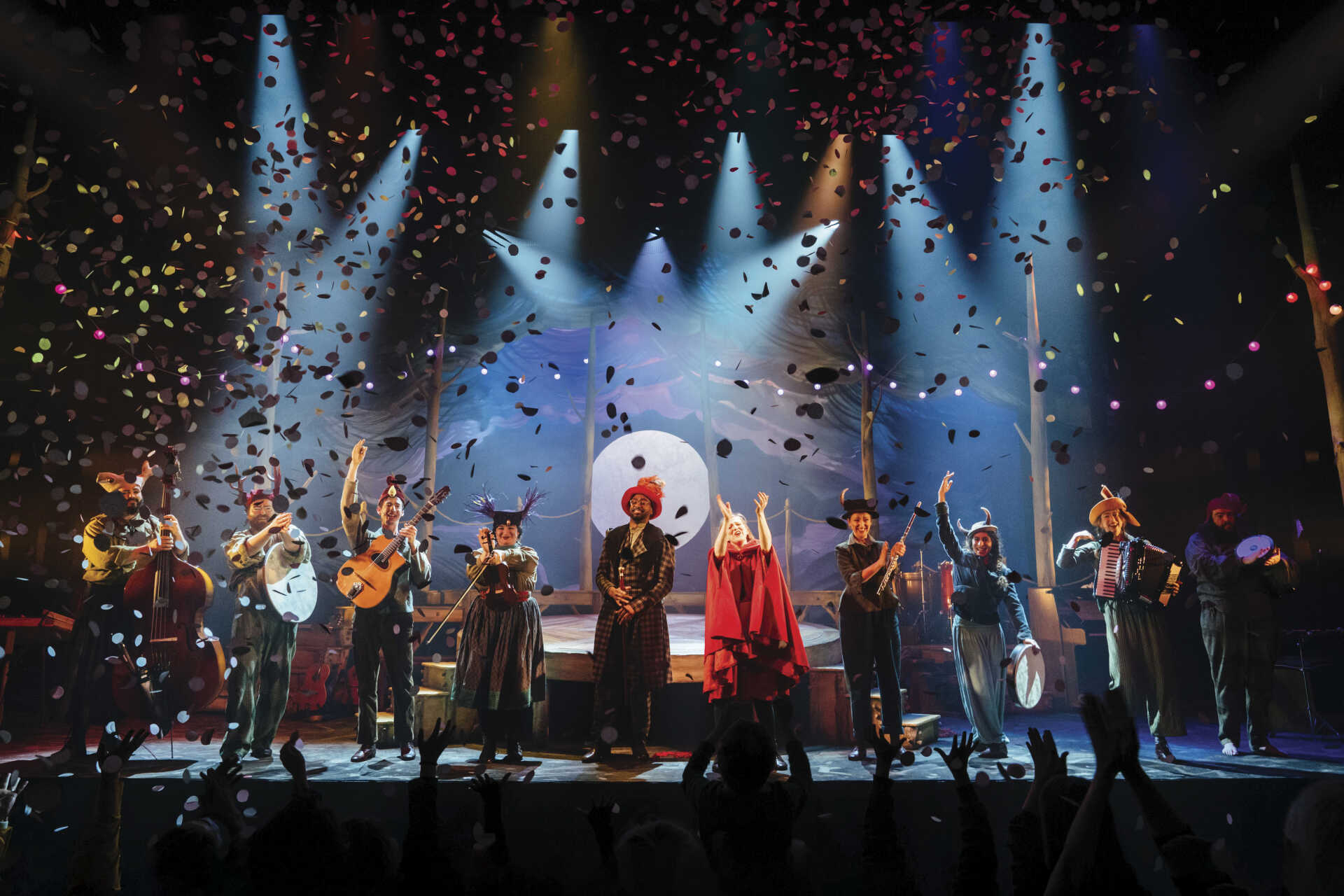
The 2024/25 annual tuition fees for this course are:
For details of when and how to pay fees and charges, please see our Student Finance Guide.
For students continuing on this programme, fees will increase year on year by no more than RPI + 3% in each academic year of study except where regulated.*
The University will assess your fee status as part of the application process. If you are uncertain about your fee status you may wish to seek advice from UKCISA before applying.
Fees for undergraduate students are £1,850.
Fees for undergraduate students are £1,385.
Students studying abroad for less than one academic year will pay full fees according to their fee status.
The following course-related costs are included in your tuition fees:
The following course-related costs are not included in your tuition fees:
Find out more about accommodation and living costs, plus general additional costs that you may pay when studying at Kent.
Kent offers generous financial support schemes to assist eligible undergraduate students during their studies. See our funding page for more details.
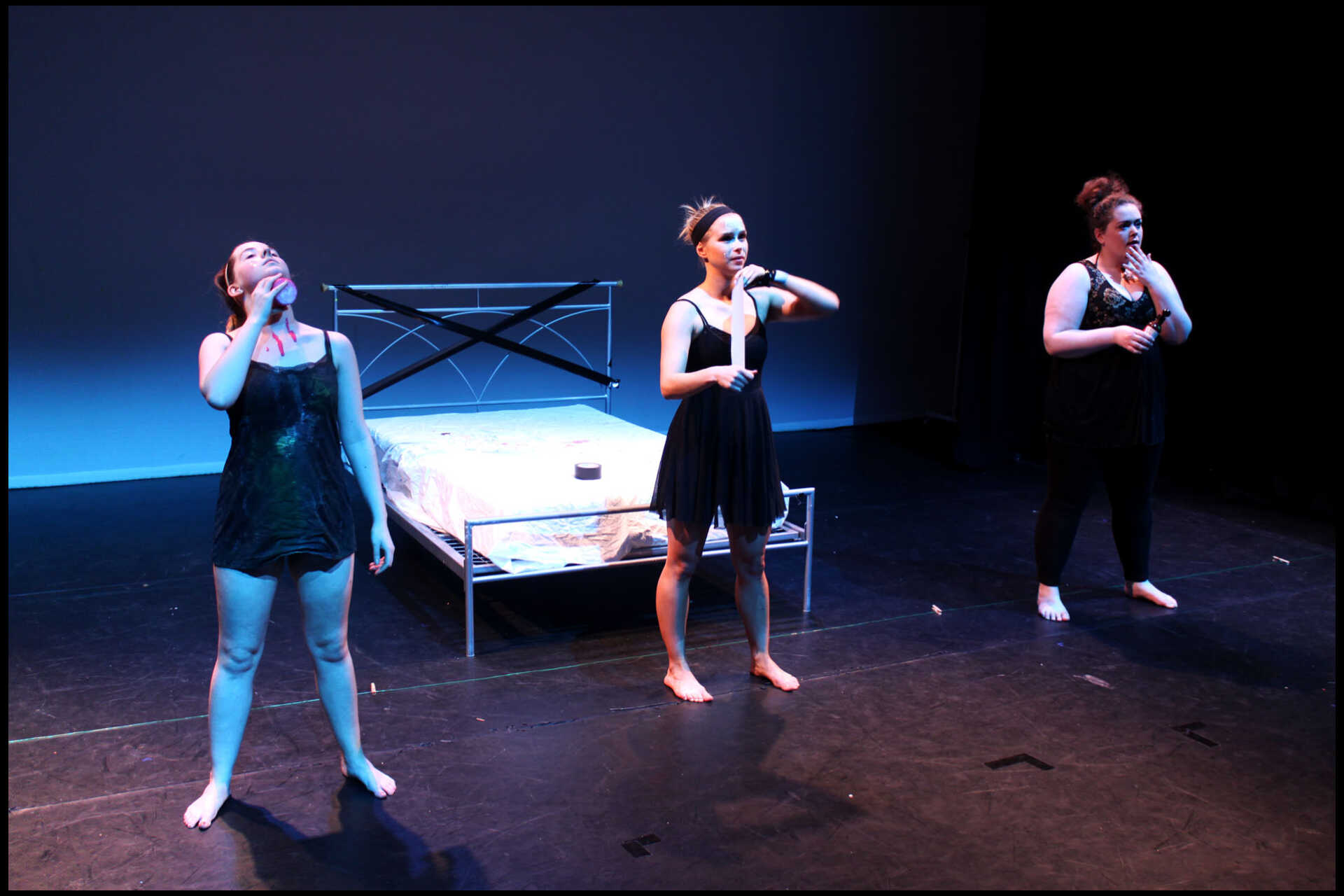
We have a range of subject-specific awards and scholarships for academic, sporting and musical achievement.
We welcome applications from students all around the world with a wide range of international qualifications.
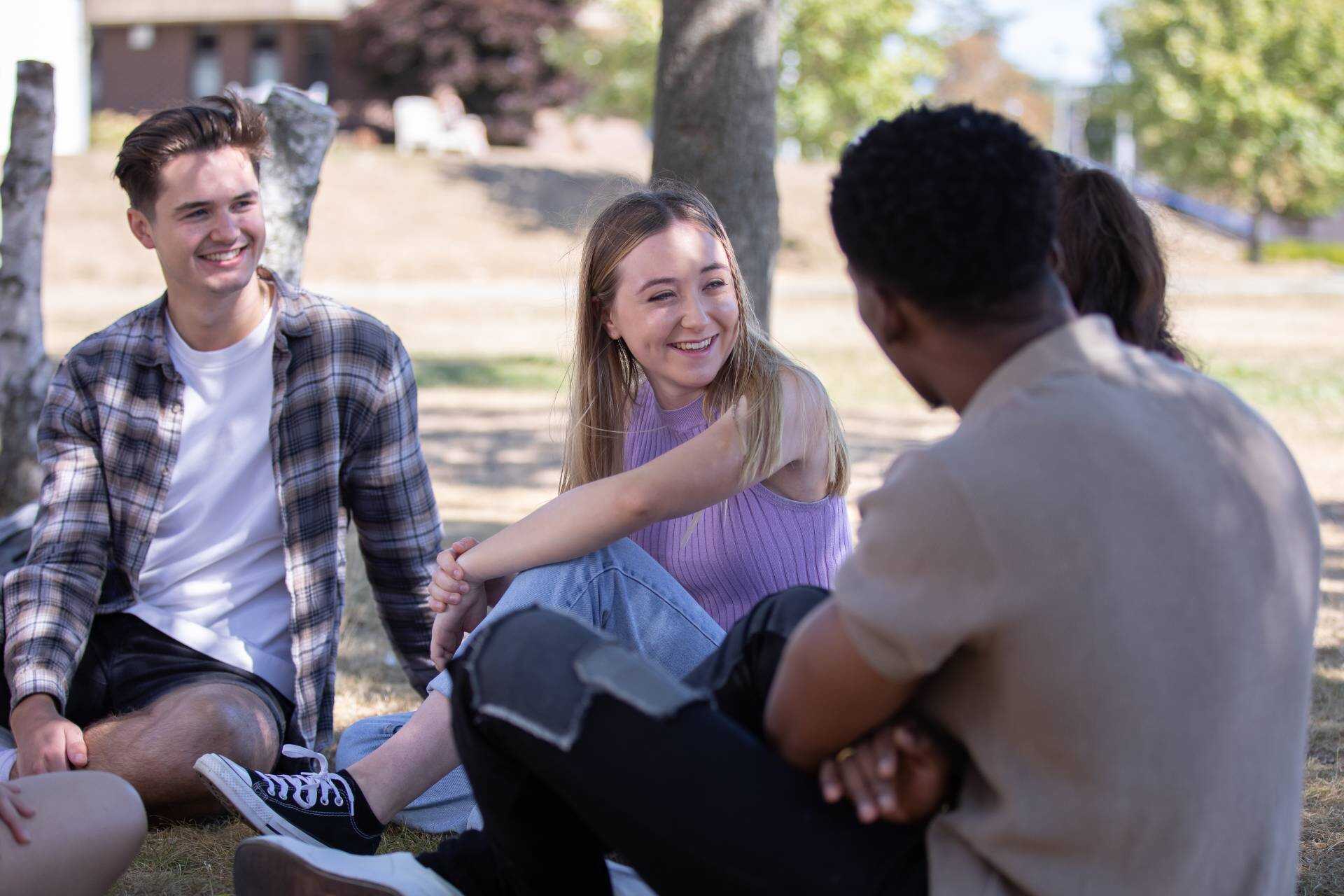
Student Life

Kent ranked top 50 in the The Complete University Guide 2023 and The Times Good University Guide 2023.
Kent Sport
Kent has risen 11 places in THE’s REF 2021 ranking, confirming us as a leading research university.

An unmissable part of your student experience.